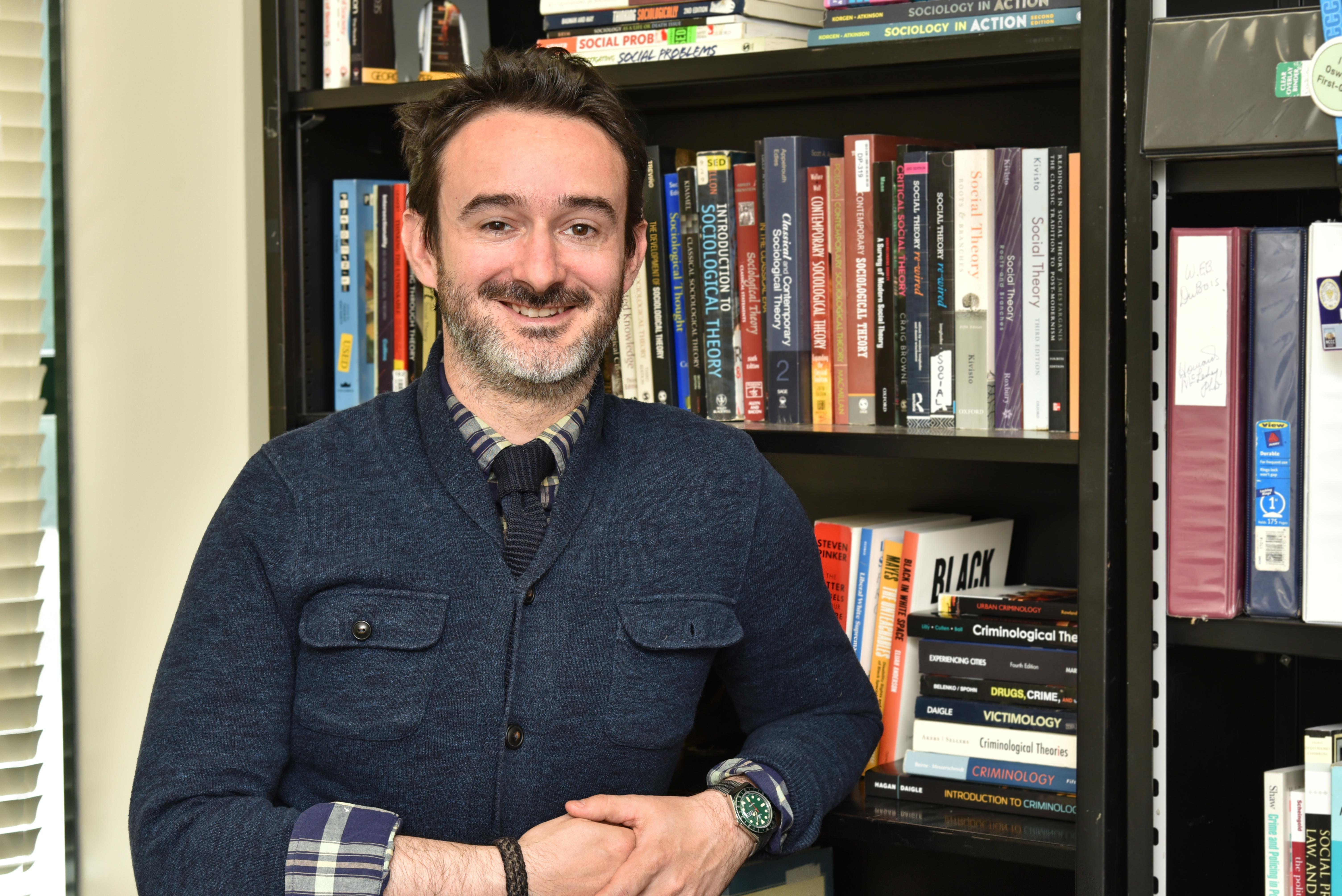SUNY Oswego criminal justice faculty member Matthew H. McLeskey will take part in a two-week summer project funded by National Endowment for the Humanities (NEH) that focuses on the importance of regional storytelling in fostering a sense of place.
Matthew H. McLeskey, an assistant professor of criminal justice, was selected for a two-week summer project funded by National Endowment for the Humanities (NEH), focusing on the importance of regional storytelling in fostering a sense of place.
The institute is hosted by the Rust Belt Humanities Lab at Ursuline College in Pepper Pike, Ohio, near Cleveland, in June
The Rust Belt -- including parts of the Northeast, Midwest and Appalachia -- is often overlooked as “flyover” country and part of a dead, industrial past, but the NEH program aims to pull the Rust Belt into the dynamic present. Twenty-five college-level educators were selected for the program, and it will focus on the creation of curricula spurring students to think critically about the Rust Belt as a region. Participants include faculty from institutions from all across the Rust Belt.
“As a multidisciplinary scholar drawing from both humanities and social sciences traditions, the multidisciplinary and place-focused theme of the seminar will be a fantastic place for me to move forward with public-facing research I have already been conducting,” McLeskey noted.
A native of the Rust Belt himself, originally being from Wheeling, West Virginia, near Pittsburgh, McLeskey earned his Ph.D. at the University at Buffalo, another Rust Belt city. “These two experiences in Rust Belt areas formed my identity as a teacher-scholar at SUNY Oswego, which now includes teaching students at our Syracuse Campus,” McLeskey said.
McLeskey’s research focuses on a significant environmental health issue in the Rust Belt: he focuses on how lead poisoning, caused by legacy building materials found across the urban landscape, tends to be concentrated in segregated neighborhoods, reproducing racial health disparities and hindering community well-being.
His doctoral dissertation research on the how lead poisoning relates to social inequalities will be published this fall in the University of Chicago Press publication "The Sociology of Housing: How Homes Shape our Social Lives," edited by Brian J. McCabe and Eva Rosen of Georgetown University.
"My chapter in the collection, 'Affordable Housing is Public Health: How Landlords Struggle to Contain America’s Lead Poisoning Crisis,' focuses on the burdens landlords face for keeping housing lead-safe and the legal liabilities encountered for non-compliance with lead abatement required by housing code," McLeskey explained.
During the NEH program, participants will focus on developing new tools to equip their students to shape the future of the Rust Belt, identify and contribute to social solutions and reimagine the role of their education within this sphere.
McLeskey said that when teaching urban studies previously, he had students adopt roles in a gentrification simulation, the type of active learning project he can make enhance in the future with what he learns this summer.
"This activity entails student groups adopting a role (renters facing a rent hike, homeowners looking to sell or developers expanding into new areas) and interacting with prompts describing their neighborhood," McLeskey said. "In the NEH workshop, I plan to expand this class activity to include ways for students to explore the relationship between gentrification, displacement and crime for the 'Drugs & Crime' course I teach in the Department of Criminal Justice at SUNY Oswego."




